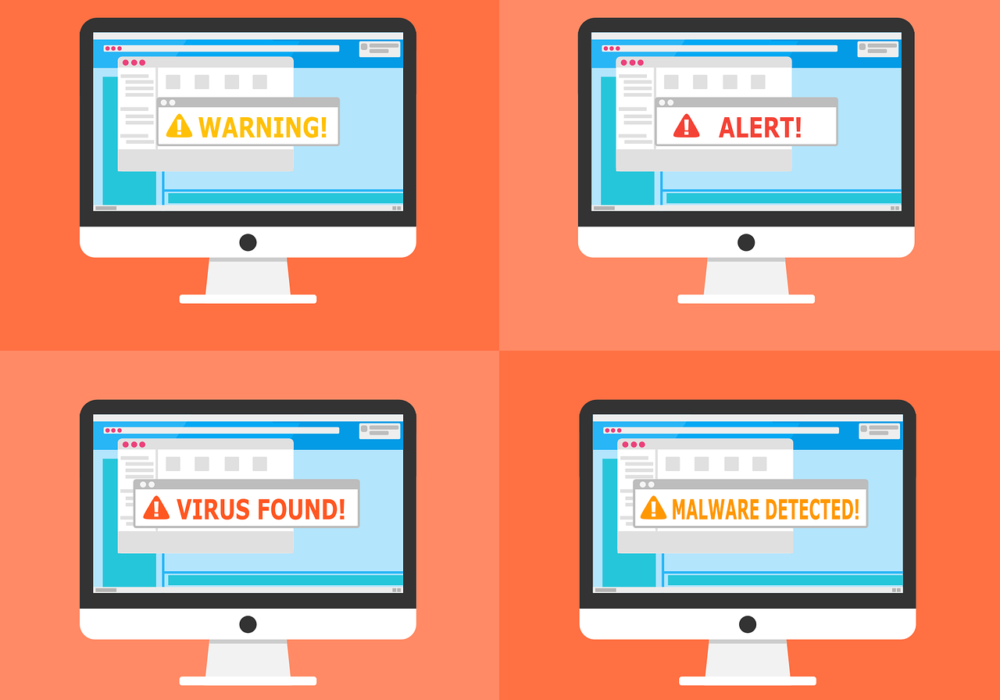Alongside its stunning beaches and rich history, Devon also boasts a thriving business scene. However, even this idyllic county isn’t immune to the shadows of cyber security threats. For small to medium-sized enterprise (SME) owners, understanding the risks their businesses face daily is critical for safeguarding their digital realms. Fortunately, help is at hand. Local IT support is more than just a resource for technology woes; it’s a dedicated ally in your ongoing battle against cyber vulnerabilities.
In this blog, we’ll explore five prevalent cyber threats every SME owner in Devon should be aware of and provide practical strategies for robust defences. You’ll learn exactly how IT support can be a game-changer in enhancing your cyber security and walk away confident in your ability to fortify your digital assets. Let’s get into it.
Threat 1: Phishing Attacks
Phishing attacks can be deployed in a variety of forms these days, but they typically involve deceptive emails or messages that trick employees into giving away sensitive information. Things like credit card details, customer email addresses, and even your team’s login credentials can be targeted by cyber criminals looking to steal money or spread malware like viruses both within and beyond your walls.
For businesses in Devon, where personal connections and local reputation are crucial, a successful phishing attack can lead to significant financial losses and damage to customer trust. Since these are the most common cyber security threats SMEs face (they constituted 84% of the attacks UK businesses faced in 2023), there’s really no excuse for not taking appropriate precautions. Cyber criminals are banking on you being underprepared, while customers assume you take every necessary measure to protect their data. Who would you rather prove right?
Defensive Steps to Mitigate Phishing
- Educate Your Team: Regular training sessions on the signs of phishing emails can dramatically reduce the risk of successful scams. They’re the people most likely to be targeted, so it makes sense to equip them with the knowledge they need.
- Implement Advanced Email Filters: Your IT support team can set up sophisticated filters that help catch phishing attempts before they reach inboxes, reducing the burden on your team.
- Regularly Update Security Policies: Keeping policies up-to-date can ensure employees know how to handle suspicious emails and any other emerging techniques that threaten operations in the future.
Threat 2: Malware and Ransomware
Malware can disrupt your business by damaging files or systems, while ransomware demands payment to unlock encrypted data. Falling victim to either can be as simple as clicking a link from an unknown sender you assume – incorrectly – to be trustworthy. A momentary lapse in judgement could see your entire team unable to carry out their tasks, and Devon SMEs, often with limited resources, can find recovery both costly and technically challenging.
Defensive Steps to Mitigate Malware
- Install Anti-Malware Software: It sounds simple enough, because it is. IT support can provide and maintain robust anti-malware software that’s crucial for defending against these malicious programs and is specifically designed to do so without interrupting your workflows.
- Conduct Regular Backups: Ensure data is backed up at multiple secure locations so you can restore information with minimal downtime. This means both on-site and remote, cloud-hosted servers. Should one be targeted, your data remains safe and sound in the other (or others, ideally).
- Keep Systems Updated: Regular updates close cyber security loopholes that could be exploited by attackers. Automate them if you tend to forget, or schedule them to be installed outside of working hours. You could even hand the responsibility over to your IT service provider; anything works as long as those updates are being deployed.
Threat 3: SQL Injection
Structured Query Language, or SQL, injection attacks target databases through flawed SQL statements, allowing attackers to access or corrupt data by manipulating the code involved. For Devon businesses that store sensitive customer or business information, such attacks can lead to significant data breaches.
Defensive Steps to Mitigate SQL Injection
- Regularly Review Database Access Controls: Limiting who can access your database and to what extent they can interact with it is essential. Employ the Principle of Least Privilege (PoLP) – only those who need to know get to know.
- Conduct Vulnerability Scans: Regular scans can identify and mitigate vulnerabilities before they can be exploited. It’s better to be proactive and prepared than caught off-guard by unexpected weak spots.
- Use Parameterised Queries: Local IT support can help implement this more secure method of database interaction, which avoids exposing your data.
Threat 4: DDoS Attacks
Distributed Denial of Service (DDoS) attacks flood your systems with excessive traffic to overload resources and render key services inoperable. For local SMEs, who might rely heavily on online sales or services, the resulting downtime can lead to significant revenue and reputation losses.
Defensive Steps to Mitigate DDoS Attacks
- Implement Network Security Measures: IT support providers can set up firewalls and other multi-layered cyber security defences to mitigate these attacks.
- Balance Load Distributors: This can help manage traffic flow and reduce the impact of any single point of attack.
- Choose Cloud Services: Cloud-hosted platforms and software often offer advanced DDoS mitigation technologies as part of their service.
Threat 5: Insider Threats
The danger you never see coming. Insider threats, whether deliberate or accidental, can lead to severe security breaches. As with any other successful cyber-attack, this kind of misconduct can not only lead to immediate financial loss but also long-term reputational damage.
Defensive Steps to Mitigate Insider Threats
- Conduct Thorough Background Checks: Before hiring staff, thorough checks can help mitigate risks. You might not think ill-intentioned insiders have much to gain from your business, but there’s always some kind of data or information that, to cyber criminals, is highly valuable.
- Implement Strict Access Controls: Limit access to sensitive information to only those who need it to perform their job functions. Once again, PoLP is key.
- Regular Security Awareness Training: Educating employees about the importance of cyber security and the role they play in protecting the business. This reduces the chances of simple negligence errors and helps flag up any team members who refuse to take safeguarding quite as seriously as they should – before it costs your SME.
Final Thoughts: Combat Common Cyber Threats with Local IT Support
Understanding cyber threats is just the first step in defending your digital realm effectively. Cyber security is an ongoing effort that requires vigilance and continuous learning. Staying informed about the latest threats and best practices, implementing robust security measures, and adopting a proactive cyber security mindset are essential tenets of any safety-focused SME and are all areas an IT service provider can assist with.
But IT support in Devon doesn’t just equip you with the tools to defend against these cyber threats and then send you out to fight them alone. It acts as an enduring ally, continually updating your defences and providing ongoing support. With such comprehensive foundations and an expert eye watching their back, local SMEs can focus more on growth and innovation, secure in the knowledge that their digital infrastructure is robustly protected. This type of active partnership ensures you’re never alone on the battlefield of cyber security, making IT support an invaluable part of your business strategy in today’s digitally driven marketplace.
BCNS: Devon’s Trusted IT Ally
At BCNS, we’re passionate about helping businesses across Devon work more efficiently and securely using the power of IT. After 25 years of supporting local SMEs, we’ve learned that every single business is unique – that’s why our solutions are tailored to match each one. To find out more about tackling the latest cyber security threats facing your business, book a free IT consultation with us today.




